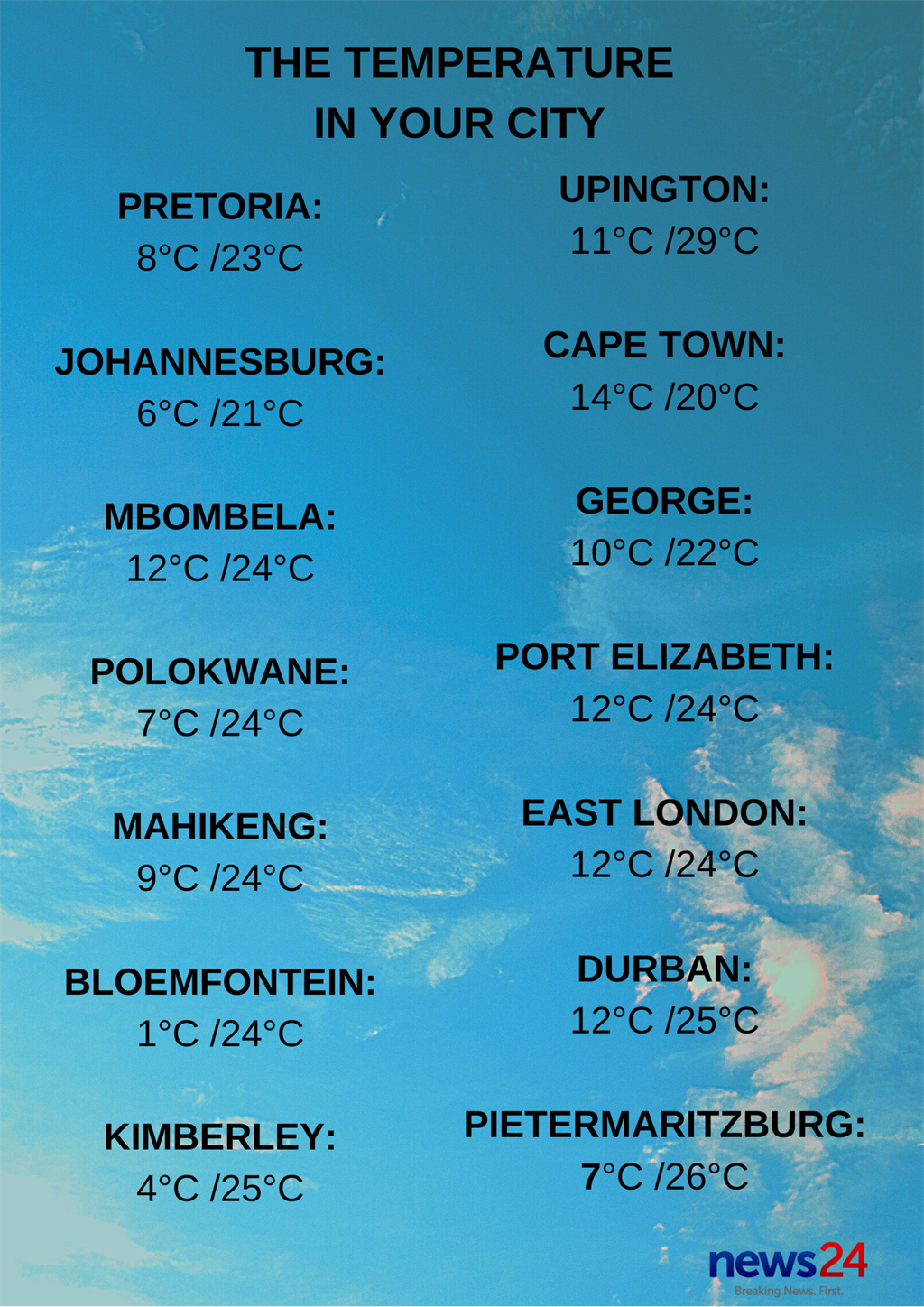
President Cyril Ramaphosa on Monday said every South African had the right to approach the courts and that even he, as president, could never stand in the way of anybody exercising that right.
This comes after a number of cases have been brought to court challenging aspects of the coronavirus lockdown regulations, such as the sale of cigarettes, the military-enforced night curfew, the ban on e-commerce and the restriction on exercise hours.
In his weekly newsletter on Monday, the president said: “While we would prefer to avoid the need for any legal action against government, we should accept that citizens who are unhappy with whatever action that government has decided on implementing have a right to approach our courts for any form of relief they seek.
“This is a normal tenet of a constitutional democracy and a perfectly acceptable practice in a country founded on the rule of law.”
Here are some of the cases currently before the courts:
DA: ‘No rational justifications for a military-enforced curfew’
The DA is taking the government to court in two separate matters which challenge the validity of some aspects of the national lockdown, including the military-enforced night curfew, the ban on e-commerce and the restriction on exercise hours.
“It is our opinion – and it is the view of many South Africans – that all three of these decisions should be immediately reversed, as there are no rational justifications for a military-enforced curfew, a restriction on e-commerce business and a limited three-hour window for exercise,” DA interim leader John Steenhuisen said on Thursday.
The party will also file court papers challenging the constitutionality of having no parliamentary oversight inscribed in the Disaster Management Act.
“Because, unless the Act meets constitutional muster, the decisions taken by the National [Coronavirus] Command Council under this Act are not valid,” he said.
Steenhuisen called for an end to the lockdown, claiming it had cost more lives than it had saved. He called out the National Coronavirus Command Council (NCCC) for what he deemed irrational decisions and for acting without any checks and balances.
He said the State of Disaster that South Africa was currently under, governed by the Disaster Management Act, had zero provision for parliamentary oversight.
“But, right now, because of this lack of oversight, the executive is effectively doing the job of writing our laws and regulations as they please, bypassing all the debate and possible opposition that would’ve happened in Parliament. We have to fight this, because from here our democracy finds itself on a very slippery slope.
“The DA will be asking the courts to apply the same oversight provisions to the State of Disaster as to the State of Emergency,” he told journalists.
FF Plus: ‘Draconian regulations’
The Freedom Front Plus intends to take an urgent application to the Gauteng High Court in Pretoria to challenge the validity of the National Disaster Management Act and to seek a ruling that the government is abusing the Act, which will mean that the announced state of disaster and the associated regulations are unconstitutional.
According to party leader Pieter Groenewald, the balance of public interest, between curbing the spread of the virus and unlocking the economy to prevent the loss of livelihoods, and subsequently lives, should come into play.
“At present, it is not taken into account with the draconian regulations imposed on the country,” Groenewald said on Thursday.
“The lockdown and the associated regulations have already served their purpose to flatten the curve of the infection rate to allow healthcare services enough time to prepare for a possible large outbreak of Covid-19.
“President Cyril Ramaphosa, the government’s own head healthcare advisor, Professor Salim Abdool Karim, and the Minister of Health, Zweli Mkhize, have all repeatedly stated that we have already reaped the benefits of the lockdown,” said Groenewald.
Groenewald said that the government was “abusing its powers” by invoking the National Disaster Management Act instead of the State of Emergency Act, “seeing as a state of emergency may only be implemented for three weeks and all regulations require Parliament’s approval and oversight”, which entails the involvement of all represented political parties.
“Even the secretary-general of the United Nations (UN), Antonio Guterres, has indicated that South Africa is one of the countries that is abusing the lockdown to violate the rights of its citizens,” Groenewald asserted.
“The FF Plus will request the court to rule that all business enterprises will be allowed to become fully operational and trade on condition that they have the relevant health and safety measures in place to curb the spread of the virus.”
Hairdressers demand reopening of salons
Hairdressers have taken their fight with the government to the high court, demanding the urgent reopening of their salons.
Their reason behind the court application was that they were faced with a lack of income and some were forced to rely on Good Samaritans to survive.
The application is led by advocate Carlo Viljoen, who has taken on the case pro bono. He said the case was being heard on 27 May in the Western Cape High Court in Cape Town.
Viljoen said he had launched the application based on the pubic interest of all hairdressers, their clients and the nation.
“I am representing taxpayers who are losing income during lockdown. The respondent is the minister of health, Zweli Mkhize. Members of the public will not be allowed inside the court building because of regulations.
“We want the industry to operate as normal under Level 4 and under safe regulations by the government. I am appearing in person and not instructed by any law firm. It is structural arguments that will take place in court. The first argument will be the urgency and we have filed a 23-page affidavit.”
He said he was concerned about the life and death of people in the hairdressing industry.
“They can’t feed their children. Some of the salon owners, who can’t make money, have been surviving on food parcels. I have prepared a detailed report from very learned people and that in some countries salons were never closed and currently Brazil has declared hairdressers as essential services.
“Psychological impact on clients is very important. This is not about hair, but overall well-being of society. I am going to rely on background from a medical professor who is currently dealing with Covid-19. Chief economist Dawie Roodt is also on board and has provided us with the economic impact on this issue.”
Ban on cigarette sales challenged
The Fair Trade Independent Tobacco Association (FITA), whose members include cigarette makers Carnilinx and Gold Leaf Tobacco, has launched an urgent court bid for government to lift a ban on sales of cigarettes and tobacco products during lockdown and to have these products be deemed essential goods.
The ban on cigarette and tobacco product sales was instituted at the start of the lockdown on 26 March. On 23 April, Ramaphosa announced that the ban would be lifted as the country moved to Level 4 of the lockdown. But just days later, Cooperative Governance and Traditional Affairs Minister Nkosazana Dlamini-Zuma said that the ban would remain in place in the interests of health. The minister noted that the government had received more than 2 000 submissions from the public objecting to the sale of cigarettes.
In light of government’s U-turn, FITA then proceeded with its court bid, questioning the government’s intent behind the ban. It also sought access to minutes of meetings and documents that informed the decision to renew the ban. The government has since agreed to provide FITA with reasons for maintaining its ban on cigarette and tobacco product sales under Level 4.
In the responding affidavit, the minister said there was “nothing sinister” behind the government’s decision to keep enforcing the ban. She indicated that the decision to promulgate the regulation on the ban was taken “after careful consideration”, not only based on submissions received from the public, but also “relevant medical literature”.
“It also is a decision that was endorsed by the NCCC and Cabinet, before the regulations were promulgated,” Dlamini-Zuma said.
“There is nothing sinister in a change of position following a consultative process: in fact, the very nature of consultation is that change may result,” she added.
FITA said it would now focus on a court declaration that the sale of tobacco products and cigarettes is lawful under the lockdown regulations. No date for this hearing has been determined yet.
The FITA court case is unrelated to proposed legal action by SA’s largest cigarette manufacturer, British American Tobacco South Africa, which has been dropped.
ConCourt dismisses Solidarity’s bid to appeal Covid-19 tourism fund decision
The Constitutional Court has dismissed an urgent application brought by union Solidarity to appeal the High Court’s decision to allow the Department of Tourism to include Broad-Based Black Economic Empowerment criteria in its allocation of tourism Covid-19 relief.
Solidarity and its associate AfriForum had approached the Constitutional Court after the Gauteng High Court in Pretoria ruled in the Department of Tourism’s favour in April.
While Tourism Minister Mmamoloko Kubayi-Ngubane welcomed the dismissal, Solidarity said in a statement on Saturday that it did not consider the matter closed.
“The Constitutional Court dismissed Solidarity’s application to appeal directly to this court. The application followed a ruling by the North Gauteng High Court that the use of race as criterion to determine who may receive aid during the Covid-19 crisis was justified.
“However, the court has not yet given a ruling on AfriForum’s application,” Solidarity said. Should the court also dismiss AfriForum’s application, both parties would appeal to the Supreme Court of Appeal in Bloemfontein, it added.
The two parties had argued that using the empowerment-based codes would not allow white-owned companies to compete fairly against black-owned entities, adding that the system was unconstitutional.
An earlier judgment by the Gauteng High Court in Pretoria found that the criteria for BB-BEE codes of good practice did not perpetuate unfair advantage for black companies.
The minister previously described the matter as “worth defending” and added that transformation was critical within the sector.
Early in April, a R200-million fund was announced by the Department of Tourism to assist small and medium tourism-related businesses whose operations had been financially impacted by Covid-19. Funding is to be capped at R50 000 per business.
The sector is one of the industries hardest hit by the pandemic as travel restrictions have been rolled out across the globe.
High profile advocates ‘step back’ from fight with Presidency over NCCC
Two high-profile advocates, who threatened to take the government to court over the constitutionality of the NCCC, have since decided to “take a step back” and will no longer pursue with their intended legal action.
In April, advocates Nazeer Cassim SC and Erin-Dianne Richards wrote to the Presidency to request clarity on the powers wielded by the NCCC, which is in charge of the government’s response to the novel coronavirus and regulations implemented during the lockdown.
But, in a letter, dated 15 May, Luqmaan Hassan from RHK Attorneys announced that Cassim and Richards had “elected to extricate themselves from any potential litigation in their personal capacities against the government”.
Hassan wrote that their decision was made in light of growing discourse over the NCCC as well as “our clients’ engagements with the Presidency to date; the birth of numerous legal proceedings on constitutional questions, and guidance from the rules and ethics of their professional bodies and colleagues.”
– Compiled by Riaan Grobler






